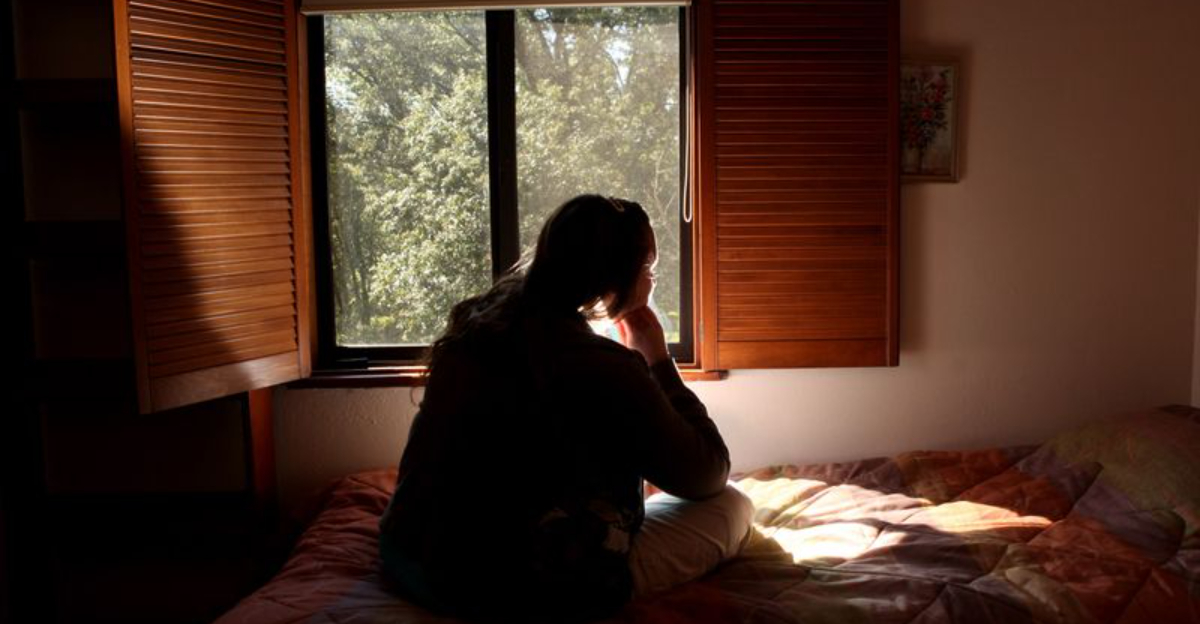17 Reasons Good Women Stay With Bad Men
You know that guttwisting ache when you watch someone you love cling to a guy who’s no good for her? I do.
There’s nothing more frustrating than realizing you can’t snap your fingers and wake her up—or yourself, if you’re the one caught in the mess.
This isn’t about blaming or fixing. It’s about the real, messy reasons women—smart, loving, stubborn women—stick by men who wreck them. You’ll find no judgment here. Only honesty, a little grit, and the hope that maybe, the truth can crack something open.
1. Fear of Being Alone
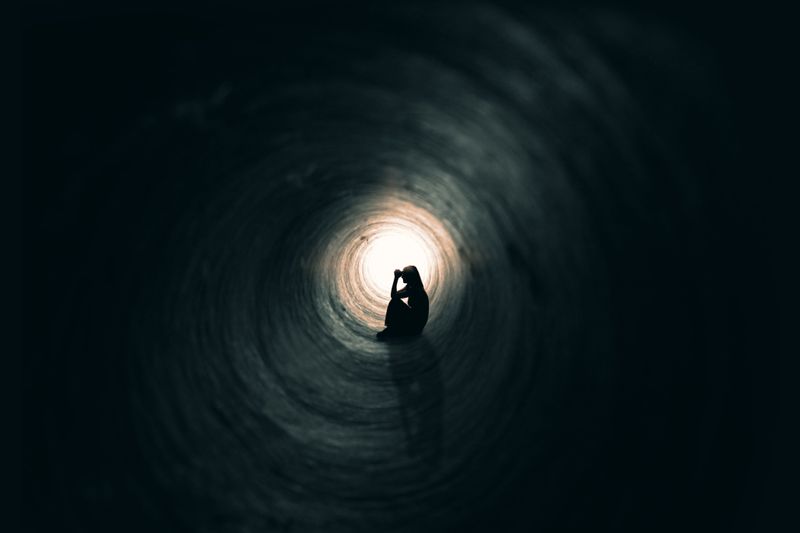
Loneliness isn’t just a Friday night without plans. It’s the echo in your bones when you wonder if anyone will ever actually stick around. That cold, sinking feeling can make the wrong arms feel safer than none at all.
Sometimes, the fear of nobody showing up outweighs the pain of staying with someone who hurts you. I’ve watched friends justify the worst behavior instead of risking an empty bed. The truth? It’s not weakness. It’s survival for a heart that’s tired of being left.
I used to think being alone was the worst thing that could happen. Turns out, that belief is how people end up settling—calling crumbs a feast because they’re starving for connection. It’s human. It’s heartbreaking, but it’s real.
2. Low Self-Esteem

She’ll laugh off compliments, convinced you’re just being nice. When you see yourself as broken or less-than, it’s easy to accept the scraps you’re handed—especially from a partner who keeps reminding you of your flaws.
You start believing you’re lucky to have anyone at all. The more your self-worth erodes, the less you expect, the more you tolerate. You find yourself apologizing for wanting basics like respect.
Some days, she remembers the girl she used to be. Most days, the voice in her head sounds a lot like his, and that voice says she doesn’t deserve better. It’s not dramatic—it’s exhausting.
3. Hope He’ll Change

It’s amazing the stories women tell themselves at 2AM. “He didn’t mean it.” “He’ll try harder.” Hope can be stubborn, painting red flags a soft shade of pink.
Every apology feels like a promise. You replay the good days on repeat, holding them up against the bad. Suddenly, you’re in a cycle—hurt, forgive, repeat—convinced next time he’ll be better.
People say hope is powerful. They forget it can be a cage. We all want to believe love can fix what’s broken, but sometimes, hope just keeps us trapped.
4. Financial Dependence
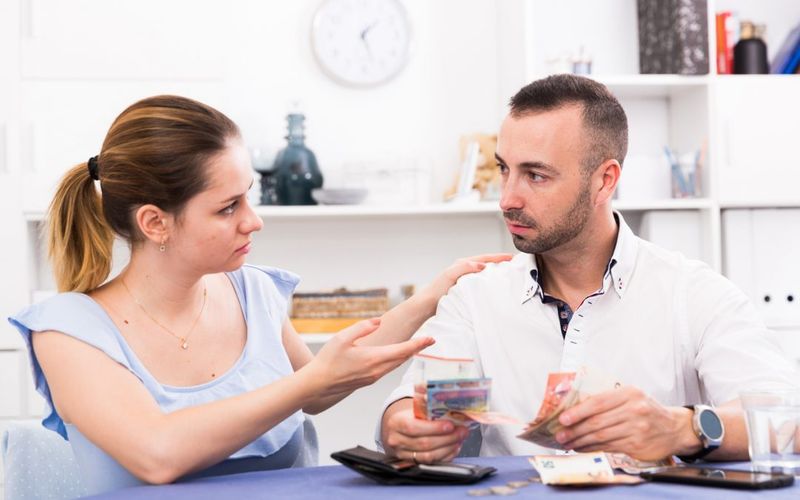
Leaving isn’t just an emotional decision. For some, it’s balancing rent, groceries, and whether she can keep the lights on after she walks away. Money can tether you tighter than love ever did.
It’s embarrassing to admit you need his paycheck as much as you hate his temper. You weigh survival against self-respect. In the end, fear of homelessness or hunger can keep you stuck even when your heart’s packed its bags.
Nobody dreams of being dependent. But when you’ve been out of work, or raising kids, or never learned how to manage money, leaving feels like leaping without a net. At times, the cage is made of dollars, not feelings.
5. For the Kids

You tell yourself you’re staying for them. Kids need both parents, you think. So you swallow the yelling, the cold wars, the broken promises—hoping to spare your children pain you can barely handle yourself.
But kids aren’t stupid. They sense the tension, the fear that stains the air. Occasionally, protecting them feels like destroying yourself, bit by bit.
The hardest part? Deciding when protecting your kids actually means leaving, not staying. The guilt cuts both ways. Love makes you brave, but it can also make you stay too long.
6. Emotional Manipulation
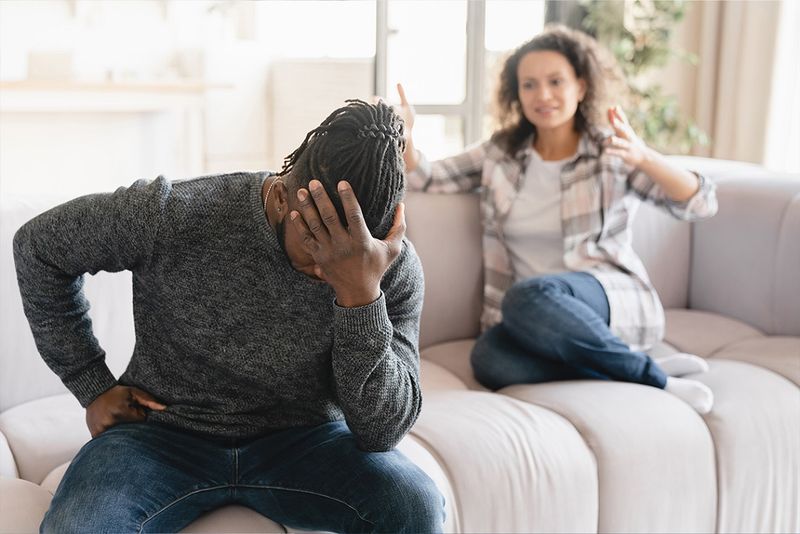
He never hits you, but you feel smaller every day. Gaslighting twists your memories—makes you question what you saw, what you felt, even your own sanity. One minute you’re fighting for your truth; next, you’re apologizing for doubting his.
This is a slow poison. You lose track of which feelings are yours. He says you’re too sensitive; you start to believe it.
After a while, you’re not sure where he ends and you begin. Your confidence fades, replaced by the constant hum of self-doubt. That’s how you get stuck, even when you know better.
7. Cultural or Societal Pressure

Your aunt whispers, “Marriage is forever.” The neighbors gossip about divorce. In some families, leaving isn’t just a personal choice—it’s a public shame.
Society can feel like a jury, always watching. The pressure to keep up appearances weighs heavy, especially in close-knit communities or conservative cultures.
In certain moments, the fear of disappointing everyone is worse than the pain at home. You become an actress in your own life, playing happy wife while dying inside. It’s exhausting, and it’s real.
8. Deep Attachment and Love

Attachment isn’t logical. Some people just burrow under your skin, and no amount of warning signs will shake the feeling that you belong with them. Love—real or imagined—has a way of making you forget the bruises, inside and out.
You remember the way he smiled at you once. You chase the ghost of the person he used to be, or maybe who you hoped he could become. The heart wants what it wants, even when it’s breaking.
People say, “Just leave.” Easy words, hard action. Love ties knots you can’t always untangle.
9. Normalization of Abuse
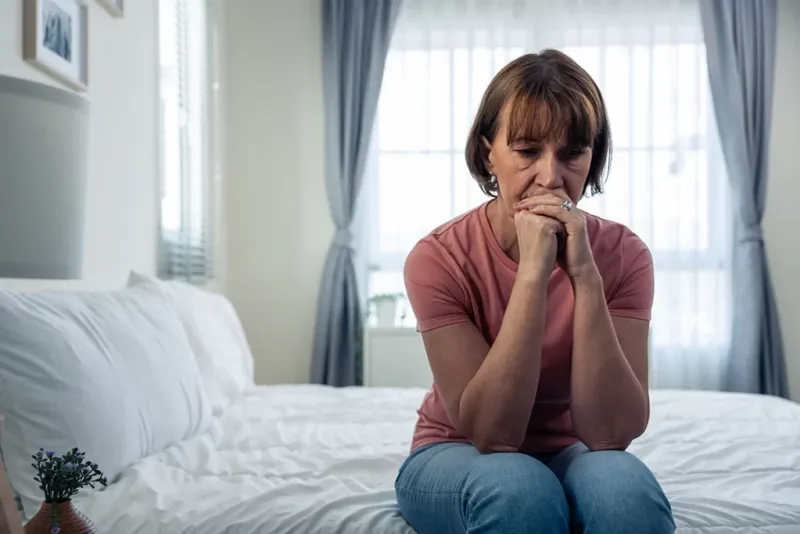
When you grow up watching people hurt each other, chaos starts to feel like home. You don’t realize kindness is an option when anger is all you’ve known.
The drama, the yelling, the slammed doors—it’s familiar. So when your partner treats you badly, it doesn’t feel shocking—it feels normal. Your brain writes off the pain as just another Tuesday.
It takes years to unlearn the script you grew up with. Sometimes you don’t even know something is wrong until someone shows you different. That’s both the tragedy and the beginning of healing.
10. Shame and Embarrassment
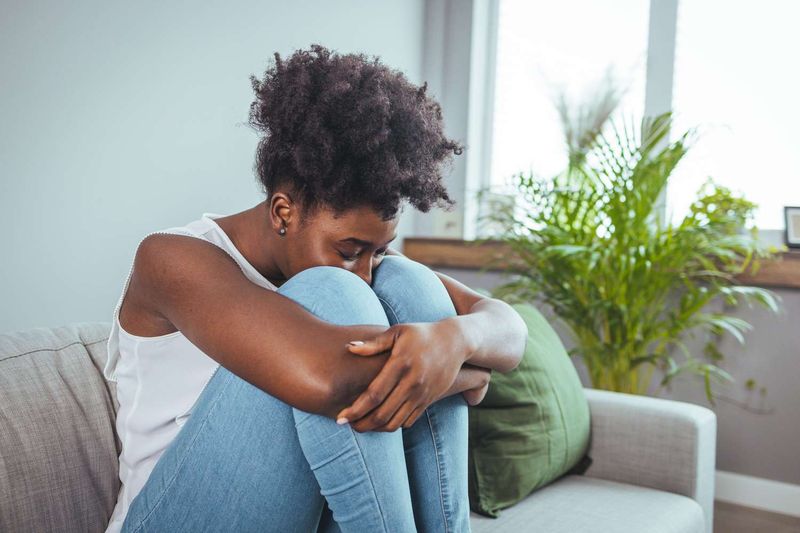
You’re mortified at how you ended up here. Telling anyone feels like admitting you failed at love, or worse, that you let yourself down. Shame silences you—keeps your pain hidden from friends, family, even yourself.
You start making excuses, dodging questions, putting on a brave face. The lie grows heavier with every passing day. You wonder if people would even believe you if you told them the truth.
Embarrassment isn’t just about what others think—it’s about what you think of yourself. At times, the hardest person to forgive is you.
11. Stigma Around Divorce or Breakups
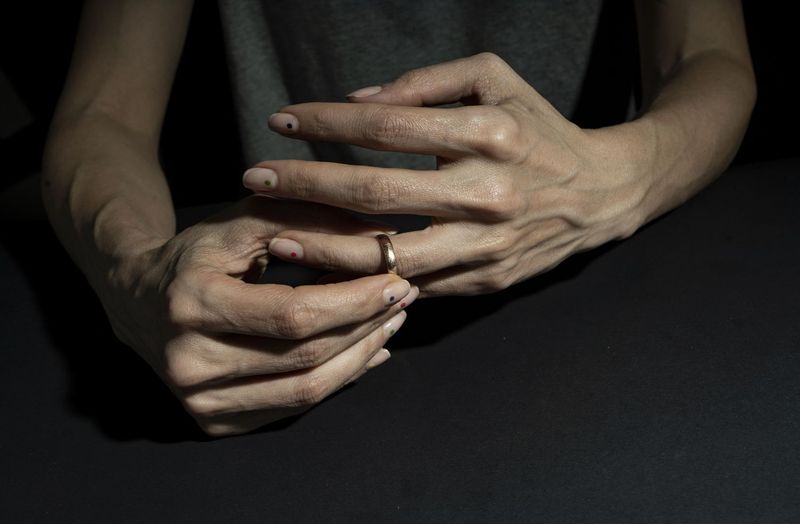
You hear the whispers—divorced, single mom, can’t keep a man. Society still stamps women with shame when relationships end, especially if you’re the one who calls it quits.
Friends pick sides, family members sigh in disappointment, and the world acts like your breakup is contagious. The burden of other people’s opinions can pin you in place.
Sometimes it feels safer to stay and suffer than to face the scarlet letter of leaving. The fear isn’t just about what you lose, but how you’ll be seen.
12. Isolation From Friends and Family

Slowly, he pulls you away from everyone who cares. Friends drift, family feels farther, and suddenly you’re an island—no lifeboat in sight.
He tells you, “They don’t understand us.” You believe him, little by little, until your circle shrinks to just the two of you. It’s hard to leave when you’ve got nowhere to go.
You miss the old laughter, the easy comfort of your people. But isolation has a way of making the wrong person feel like the only person.
13. Trauma Bonding
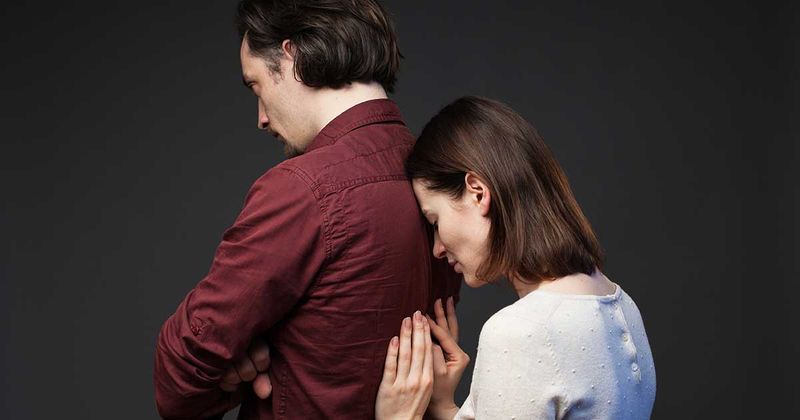
The pain and the apologies blend together. After every fight, he promises the world. The highs and lows become addictive—a roller coaster you can’t stop riding.
You learn to crave the good moments, each one sweeter because of what came before. It’s not love, exactly, but it feels close enough to make you stay. Breaking free feels like losing a part of yourself.
Trauma bonds aren’t romantic—they’re survival tactics. You get hooked on hope, even when hope hurts more than it heals.
14. Fear of Starting Over
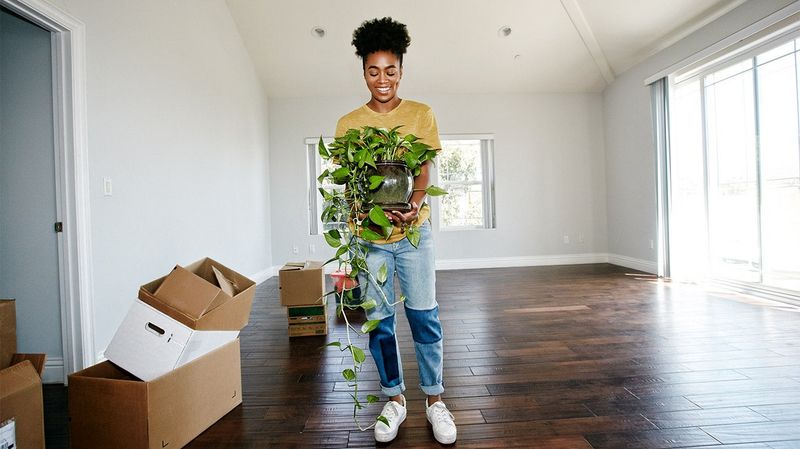
The thought of rebuilding your life is paralyzing. Packing up memories, facing the dating world, learning how to sleep alone—all of it looms larger than any argument or heartbreak.
You tell yourself it’s too late, too hard, you’re too old. But deep down, you know you’re just scared. Starting over means admitting things went wrong, and nobody likes to feel like a beginner again.
The comfort of familiarity wins out over the risk of freedom. You settle, not because you’re weak, but because new beginnings can be terrifying.
15. Belief in Loyalty and Commitment

Some people are taught to stick it out, no matter what. Loyalty becomes a badge of honor, commitment a chain you never take off.
You tell yourself love is supposed to be hard work. You cling to promises—his, yours, God’s. Giving up feels like betraying everything you once believed.
But loyalty can be misplaced. Sometimes, loving someone means letting go, not holding on. Old vows can keep you trapped long after they stop making sense.
16. Lack of Support or Resources

You know you need out, but what then? Shelters are full, money is tight, and help feels a million miles away. The world shrugs off your pain, offering platitudes instead of practical support.
Without a safety net, even the worst relationship can seem like the only option. It’s not about wanting to stay—it’s about not knowing how to leave.
The system isn’t built for you. In some moments, it feels like you have to save yourself, even when you’ve got nothing left to give.
17. Fear of Retaliation or Harm
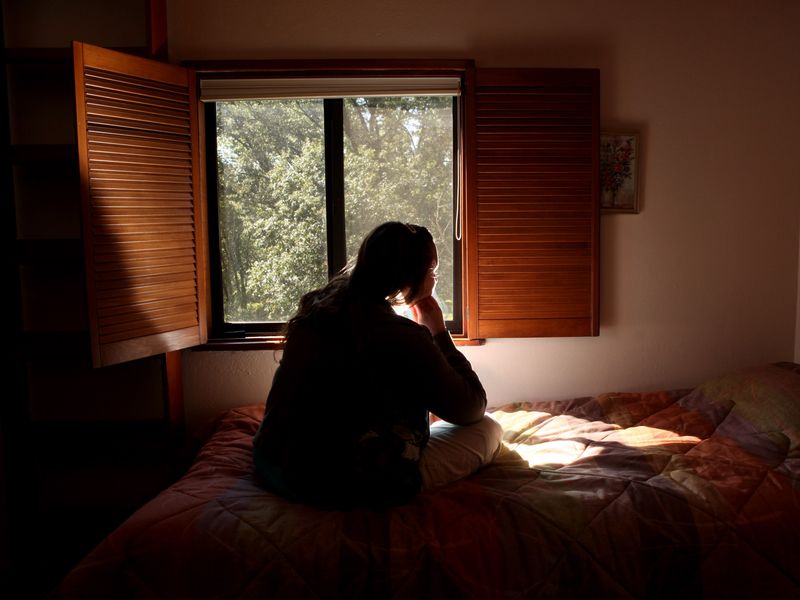
Leaving can be dangerous. Occasionally, you stay not because you love him, but because you’re scared of what he’ll do if you go. Threats—silent or spoken—hang in the air like storm clouds.
You plan your escape in secret. Maybe you stash money, memorize hotlines, rehearse what you’ll say if things get ugly. Every decision is weighed against the risk.
Survival isn’t weakness. Some women stay to stay alive. That’s the ugliest truth, and too many people look away from it.

